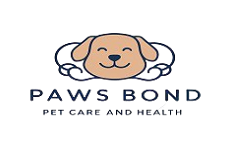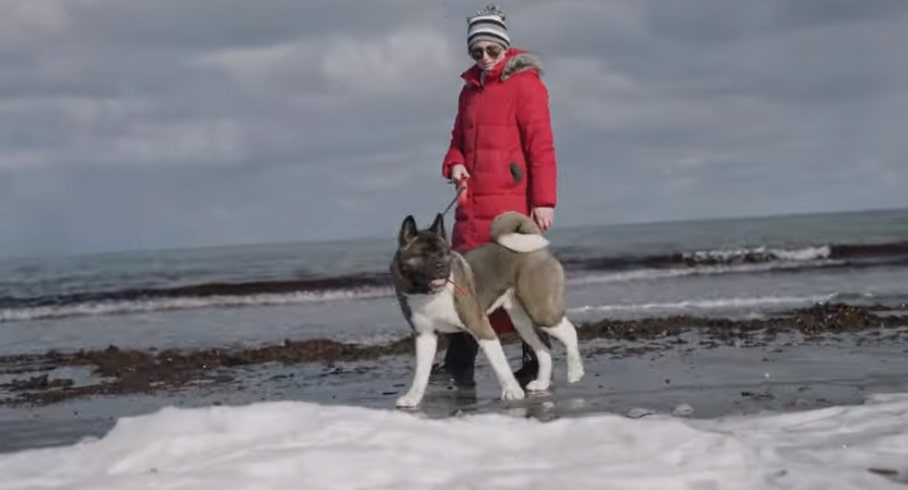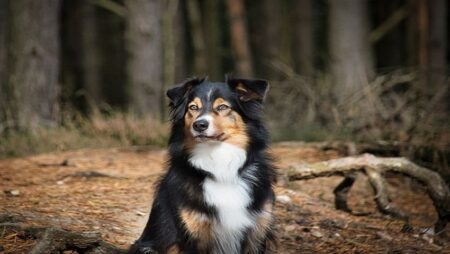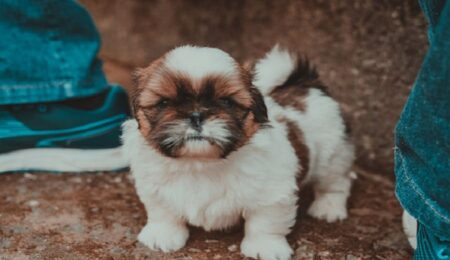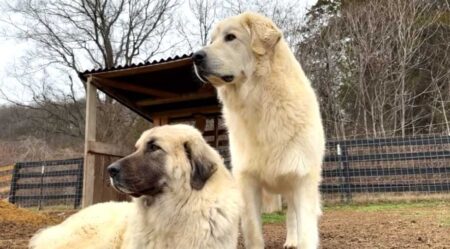For the general health and wellbeing of American Akitas, it is imperative to provide them with the best possible diet. For these magnificent canines to flourish and keep their robust bodies, they need a balanced food that satisfies their unique dietary requirements. Since Akitas are recognized for having a muscular build and being active, maintaining healthy muscle and energy levels need high-quality protein sources. Furthermore, feeding them a balanced diet with of vital elements including vitamins, minerals, and omega-3 fatty acids helps to maintain the health of their joints, immune system, and coat. It’s important to take into account your American Akita dog’s age, activity level, and any dietary restrictions when choosing food for them.
Always Avoid Giving an Akita These Foods
Certain foods should always be avoided since they can be poisonous or hazardous to Akitas. Among them are:
Chocolate:
Has theobromine, which is poisonous to dogs and can cause a number of health problems..
Grapes and raisins:
can lead to canine renal failure.
Onions and garlic:
Includes substances that have the potential to harm a dog’s red blood cells and cause anemia.
Avocado:
Includes persin, which may be harmful to canines.
Alcohol:
Dogs can develop alcohol intoxication and other severe health issues from even tiny doses..
Keeping these foods out of your Akita’s reach is crucial to avoiding accidental intake and other health hazards.
Foods That Are Okay, But Still Not Recommended
Even though some foods might not be toxic to Akitas in tiny amounts, it is still not advised to feed them for a variety of reasons. Among them are:
Dairy products:
Certain Akitas may have a lactose intolerance, which can cause unsettled stomachs.
High-fat foods:
Overeating fat can make Akitas more prone to obesity and intestinal problems.
Processed foods:
These frequently include preservatives and additives that could not be good for your Akita’s health.
Sugary treats:
In Akitas, eating too much sugar can cause tooth issues and weight gain.
Raw meat:
Although some support raw feeding, there is a chance of bacterial contamination and it might not offer a balanced diet.
To guarantee that your Akita receives the nutrients they require without needless additives or hazards, it’s important to choose a high-quality, balanced dog food that has been specially made for them.
Unfamiliar Environment
For dogs, especially American Akitas, adjusting to a new environment can be difficult. When in unfamiliar situations, they could act wary, nervous, or even afraid. Provide your Akita with familiar objects, such their bed or favorite toys, keep a regular schedule, and provide comfort and encouragement to aid with their adjustment. Let them explore at their own speed as you progressively expose them to different situations and surroundings. Over time, with patience and gentle coaching, your Akita can learn to feel more at ease in new situations.
Behavior Issues
American Akitas may exhibit behavioral issues when they acclimate to new surroundings. Anxiety, aggressiveness, and fear are common problems. Create a schedule that is predictable, provide recognizable objects, and provide positive reward for desired behaviors in order to address issues. Akitas can also benefit from socialization and obedience training to become more self-assured and well-mannered in a variety of settings. To ensure a harmonious relationship with your Akita, seeking professional coaching from a behaviorist or trainer can help manage and resolve behavior difficulties in an individualized manner.
Sickness
American Akitas are susceptible to illness, which can cause discomfort and anxiety. Akitas frequently experience autoimmune diseases, stomach torsion, and hip abnormalities. Lethargy, vomiting, or diarrhea are examples of symptoms that need to be seen by a veterinarian right away. Your Akita’s health may be preserved with preventive measures including regular exercise, a well-balanced food, and frequent veterinary checkups. In addition, maintaining your Akita’s health and lifespan depends on early discovery and fast treatment of any ailment.
Human Foods to Keep Your Akita Away From
Dogs can safely eat some human foods, however there are others that can affect Akitas and should be avoided:
Chocolate:
Includes theobromine, which is poisonous to dogs and can cause a number of health problems.
Grapes and raisins:
can lead to canine renal failure.
Onions and garlic:
Includes substances that have the potential to harm a dog’s red blood cells and cause anemia.
Avocado:
Includes persin, which may be harmful to canines.
Alcohol:
Dogs may suffer from alcohol intoxication and other severe health issues from even tiny doses.
Keeping these foods out of your Akita’s reach is essential to avoiding accidental intake and possible health hazards.
How Much Food Should an American Akita Eat?
The right amount of food for an American Akita might vary depending on their age, weight, metabolism, and degree of exercise. Generally speaking, adult Akitas need two to three cups of premium dog food a day, split into two feedings. Individual requirements could differ, though, so it’s critical to keep an eye on your Akita’s physical state and modify their food consumption as necessary. To create a feeding schedule that is customized to your Akita’s unique needs and ensures they get the right nourishment to maintain their general health and wellbeing, speak with your veterinarian.
Nutritional requirements of the American Akita
Like all dogs, American Akitas need a balanced diet to maintain good health and wellbeing. The following are the main dietary needs for American Akitas:
Protein: A high-quality source of protein is necessary for maintaining general health and muscular mass. Seek for dog foods where the primary ingredient is actual meat.
Fat: A healthy fat intake in moderation promotes the health of the skin and coat and gives you energy. Select dog food that contains fatty acids (omega-3 and omega-6)
Carbohydrates: A moderate amount of carbohydrates can provide energy. Look for whole grains or easily digestible sources like sweet potatoes.
Vitamins and Minerals: For general health, akita bites require some vital vitamins and minerals, including as calcium, phosphorus, zinc, and the B-complex vitamins A, D, E, and E.
Water: Sufficient hydration is essential for healthy metabolism, digestion, and general wellbeing. Your American Akita needs fresh, clean water at all times.
The ideal nutrition plan for your American Akita will depend on their age, weight, amount of exercise, and any particular health issues; speak with your veterinarian about this.
How much should an American Akita puppy eat?
An American Akita puppy’s ideal weight, activity level, age, and metabolism all have a role in how much food they should consume. To support their growth and development, American Akita puppies generally need more food per pound of body weight than adult dogs need.
Since very young puppies have small stomachs and high energy needs, it is normal practice to feed them little, frequent meals throughout the day. Feeding frequency can be decreased as they become older to three or four meals a day, then progressively reduced to two meals a day as they become adults To avoid overfeeding or underfeeding, it’s critical to keep an eye on your Akita puppy’s physical condition and modify their food intake properly. Personalized advice based on the unique requirements and growth rate of your puppy can be given by your veterinarian. Feeding premium puppy chow designed for large breeds can also help guarantee that your pet gets the nutrients they need for a healthy start in life.
Nutritional supplements for an American Akita
Glucosamine and Chondroitin:
For large breeds like the American Akita that are prone to hip dysplasia and arthritis, these supplements help enhance joint health and mobility.
Omega-3 Fatty Acids:
Fish oil and other omega-3 supplements can help Akitas’ skin and coat stay healthy, lower inflammation, and strengthen their cardiovascular systems.
Probiotics:
Probiotic pills can enhance the general gastrointestinal health of American Akitas by enhancing food absorption and preserving a healthy digestive tract.
Vitamin and Mineral Supplements:
Supplemental vitamins and minerals including vitamin E, vitamin D, calcium, and zinc may be beneficial for your Akita, depending on their diet and specific requirements.
Multivitamins:
To make sure their Akita gets all the nutrients they need, some owners might decide to give them a daily multivitamin, particularly if their diet isn’t full or balanced.
It is imperative to speak with your veterinarian before adding any supplements to the diet of your American Akita. They can offer tailored advice depending on the health, dietary requirements, and any particular ailments or worries of your Akita. They can also offer advice on appropriate dosing and any drug interactions with supplements or other medications.
What foods are Akitas allergic to?
Like any other breed, akitas are susceptible to developing dietary allergies or substance sensitivities. Though individual sensitivity levels may differ, the following foods are frequently allergens for Akitas:
Grains:
Dogs, notably Akitas, are frequently allergic to wheat, corn, and soy. Choosing diets with fewer or no grains could help reduce the possibility of allergies to grains.
Protein sources:
Allergies to particular protein sources, like dairy, beef, or chicken, can occur in some Akitas. In these circumstances, it could be advantageous to move to new protein sources like lamb, fish, or venison..
Artificial additives:
For Akitas who are susceptible to allergies, commercial dog diets often contain artificial preservatives, colors, and flavors. Selecting meals that are natural or minimally processed can help lower the chance of negative responses.
Fillers and by-products:
Akitas may also get allergic reactions from dog food that contains low-quality fillers and meat byproducts. Reducing the likelihood of food allergies can be achieved by choosing premium, meat-based meals free of additives.
Consult your veterinarian if you think your Akita may have food allergies in order to identify the underlying reason and create a customized nutrition plan. In order to pinpoint particular allergens and ascertain the best diet plan for your Akita, you might need to conduct a food elimination trial.
Conclusion
While Akitas are generally robust and resilient dogs, they can still face various health challenges and dietary sensitivities. Understanding their nutritional requirements, potential allergies, and health concerns is essential for providing optimal care. By feeding a balanced diet tailored to their needs, avoiding common allergens, and monitoring their health closely, you can help ensure your Akita’s well-being and longevity. Regular veterinary check-ups, proper grooming, and adequate exercise are also crucial aspects of maintaining their overall health and happiness. With proper care and attention, your Akita can lead a healthy and fulfilling life as a cherished member of your family.
